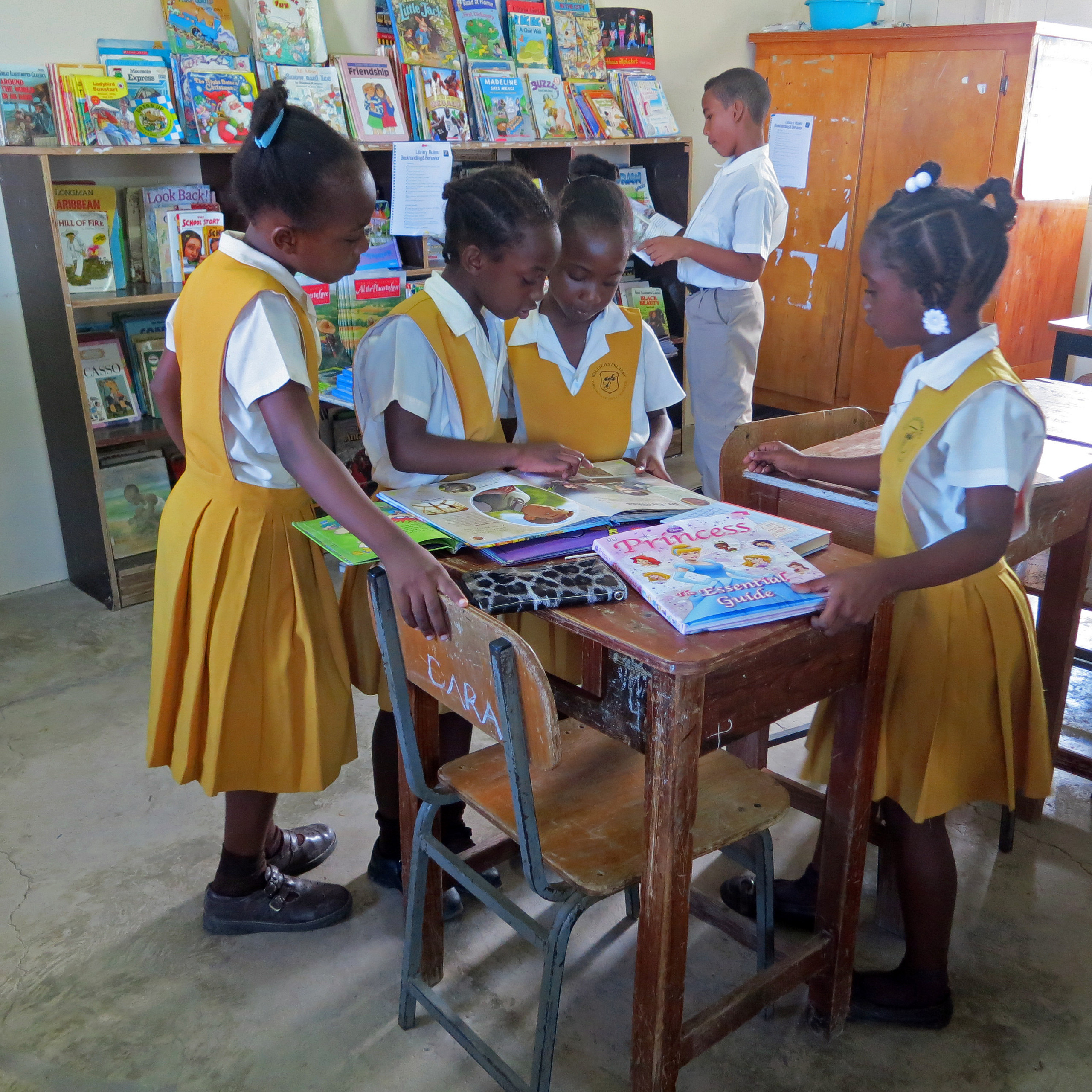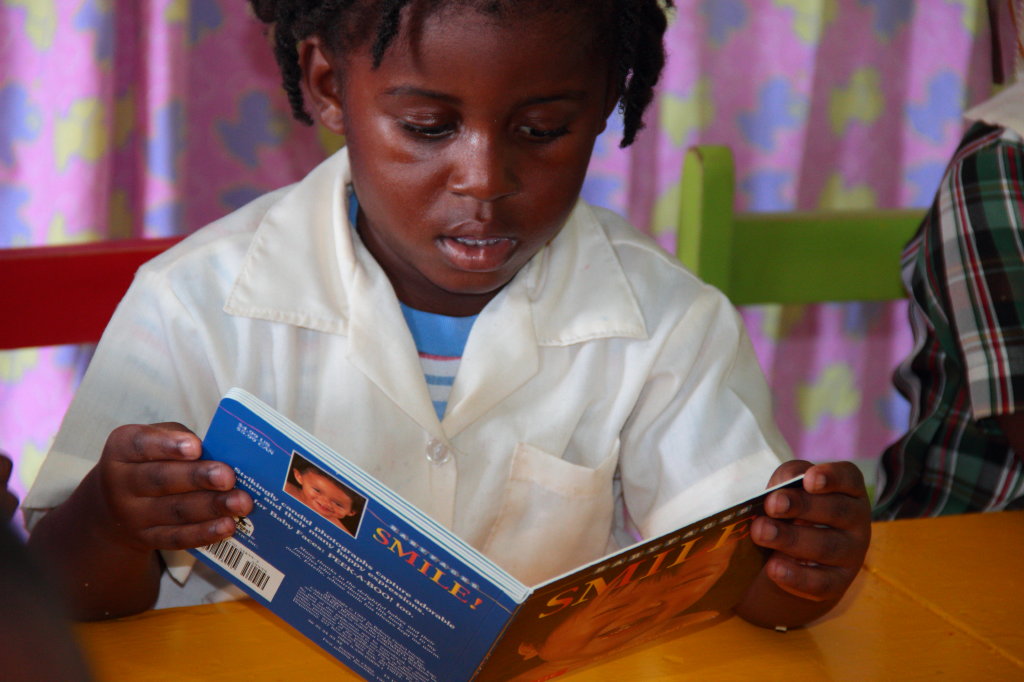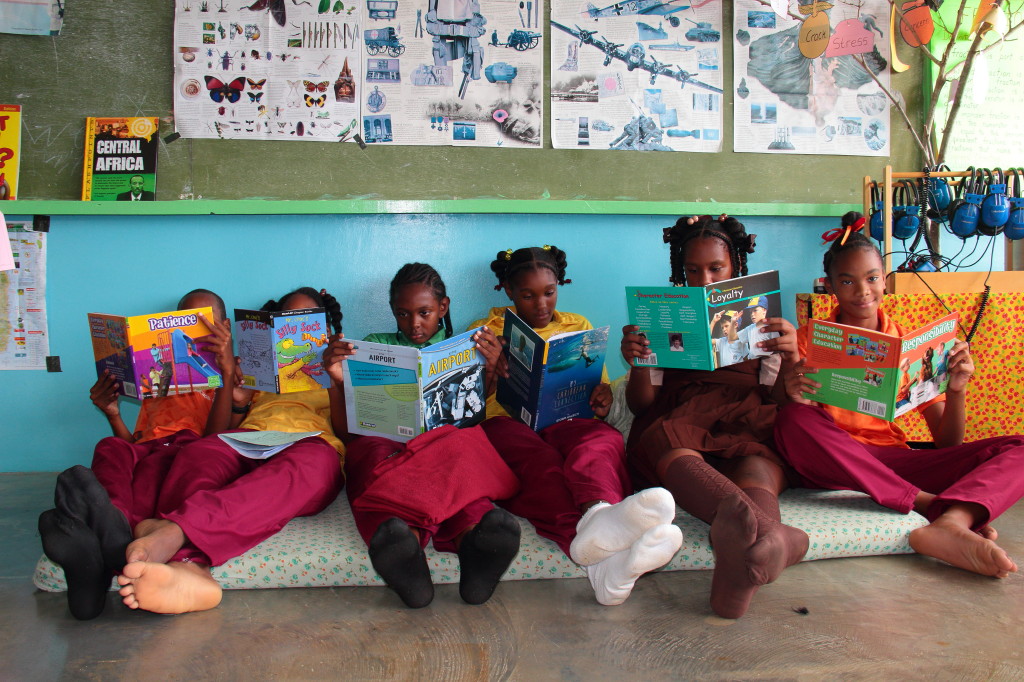Three Step Process:

Send great new books
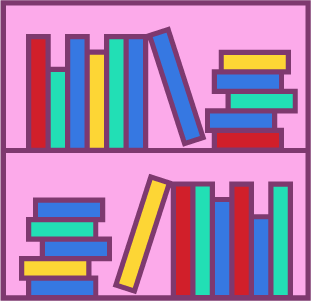
Create or rejuvenate lending libraries

Sustain literacy gains
Our Core Activities & Key Strengths
Since 2007, Hands Across the Sea has been embedded in island schools. The Caribbean Literacy And School Support (CLASS) approach: send great books, create, or rejuvenate lending libraries, and sustain literacy gains has reached more than 140,000 children in grades K-12 by placing more than half-a-million books in over 435 primary schools, secondary schools, and community libraries.
CLASS does more than provide great books that students want to read. In primary schools across the Eastern Caribbean islands, teachers engage students with reading “tea times.” They conduct read-aloud sessions and have students draw pictures inspired by the book they just heard.
CLASS program officers, highly credentialed retired school teachers, principals, and education professionals known as Literacy Links engage teachers to incorporate the library into daily life. They mentor educators and youth giving them the tools to create and shape a fun environment that inspires students to become readers.
Rejuvenating and maintaining libraries in schools and in the communities includes organizing interesting and appropriate book collections, supporting library and in-school literacy initiatives, and training student librarians. Students as young as second grade learn to help their peers select books. They conduct checkouts and serve as library ambassadors in the community. The student librarians pass on their enthusiasm for reading and form the core of the next generation of librarians.
Asked to explain in a word their enjoyment of being student librarians the children said: glad, happy, excited, important, special, proud, joyful, intelligent.
Sustaining literacy gains takes many forms. Hands Across the Sea library-use manuals guide teachers in best practices. Librarians and teachers record instructional videos and conduct training sessions to demonstrate proper technique for classroom read aloud programs. The impact can be seen at a broader level as Hands Across the Sea conducts read aloud coaching sessions for the USAID Early Learners’ Programme.
Hands Across the Sea’s investment in childhood literacy has created meaningful gains in the islands but there is more work to be done.
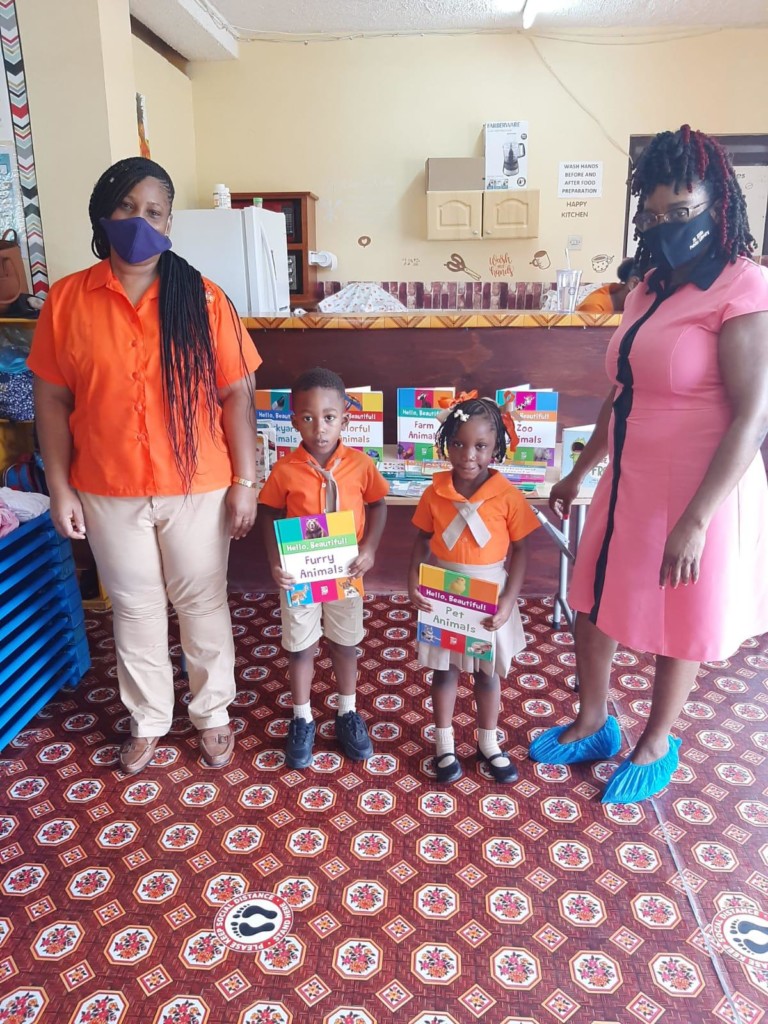
A U.S. Agency for International Development, USAID assessment of Grade 2 students reveals only nine percent read at grade level. Even though the number subsequently doubled, this means that 75 percent of island children are still behind in their reading proficiency.
Many students struggle with oral reading skills, word and story comprehension and difficulty in writing and composition.
Funding for Hands Across the Sea covers new book purchases each year, but book stocking is a continuous process. Each year new students enter the program. New books are published and old or worn books need to be removed from circulation.
The work of CLASS continues, inspired by the gains that do happen. One of the student librarians, a sixth-grade girl said, “Knowing how to read turns a page in your imagination.”
Important Roles in the CLASS Program
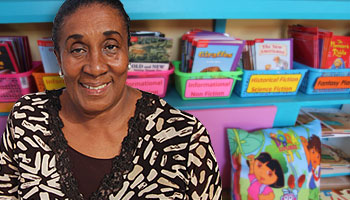
Literacy Links
On the frontline are local Program Officers known as Literacy Links. Trusted leaders in their community and known for their consistent presence, deep knowledge, and tremendous care, creativity, and love, Links are integral to sustaining libraries and literacy programming. Links work directly with students, principals, educators, and with local OECS-led programs, Peace Corps Volunteers, and community groups.
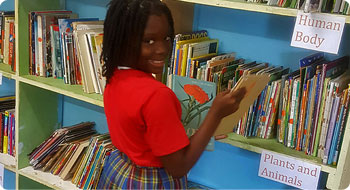
Student Librarians
With a bit of training and plenty of encouragement and trust, primary school boys and girls from Grade 3 to Grade 6 can do just about everything to run the library. This self-esteem and skill-building program is the first opportunity many children have to hold a position of leadership in their community. Schools and families who participate in the program signal their commitment to the library and invest in an environment where enthusiasm for books and love of reading can thrive. More than 1,200 children have completed Hands Across the Sea’s Student Librarian training.
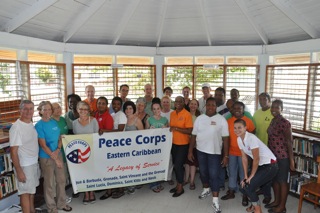
US Peace Corps
For 14 years, Hands Across the Sea has partnered with more than 100 U.S. Peace Corps Volunteers stationed in the Eastern Caribbean. Working alongside educators to raise reading levels of children and create or rejuvenate a lending library, Peace Corps’ renewed focus on improving child literacy and assisting students and teachers in Grades K to 3 has provided invaluable leadership and care in school libraries.
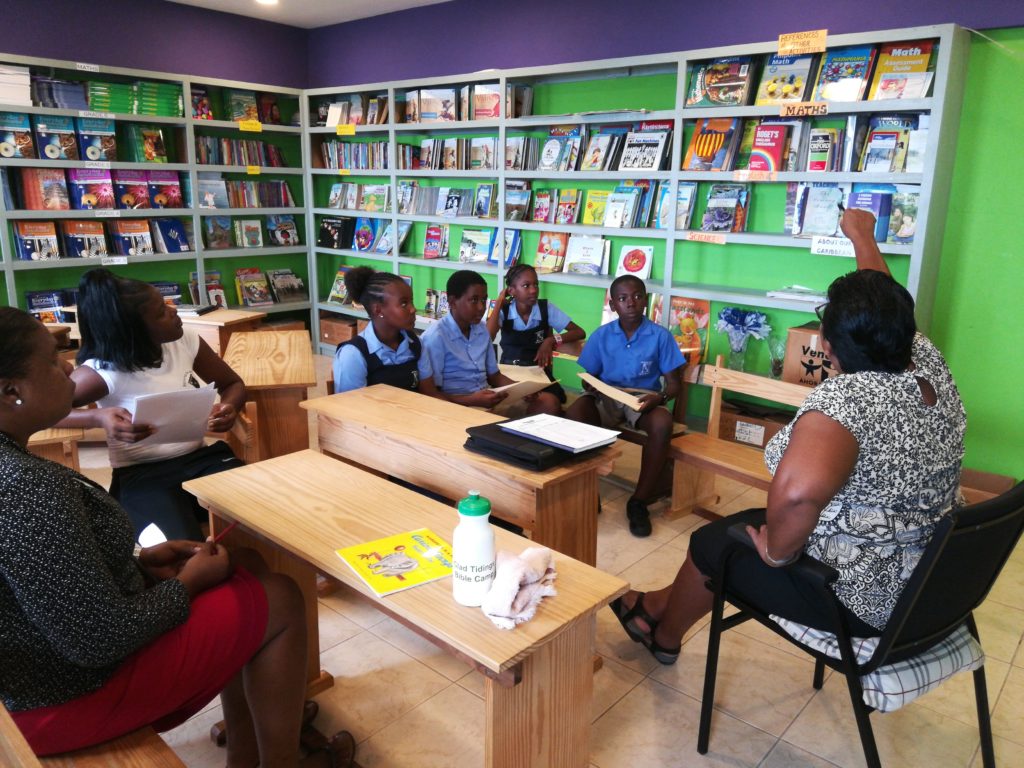
Apprentices
State and regionally-led initiatives place young people in school libraries where they build practical skills and support Hands’ CLASS Program. Apprentices work alongside Literacy Links and utilize Hands’ Library Manual for Primary Schools while promoting library Best Practices and school literacy programs.

